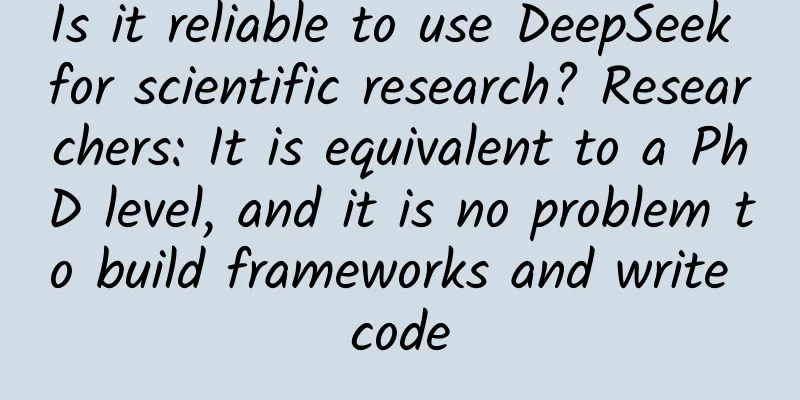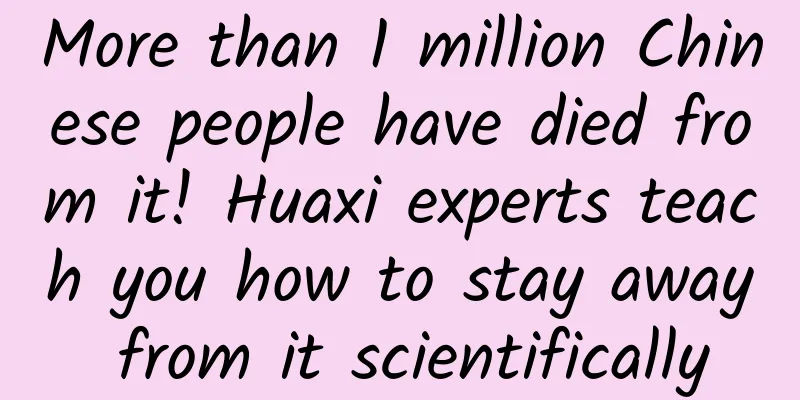Shocking! Eating too much high-protein food can cause such serious harm! After reading this, do you still dare to eat like this?

|
Compiled by: Gong Zixin High-protein diet is a popular dietary trend and is often promoted as part of healthy living and scientific weight loss. Does high protein really mean better health? Recently, researchers at the University of Pittsburgh School of Medicine have discovered a molecular mechanism by which excess dietary protein increases the risk of atherosclerosis. The results of the study were published in the journal Nature Metabolism. The study, which involved a series of experiments in various models, from cells to mice to humans, showed that consuming more than 22% of dietary calories from protein led to increased activation of immune cells that play a role in the formation of atherosclerotic plaques, thereby increasing the risk of disease. In addition, the scientists found that leucine, an amino acid, plays an important role in driving the pathological pathways associated with atherosclerosis, or hardening of the arteries. According to the American Dietary Survey, people generally consume a lot of protein (mainly from animal sources) in their daily diet, and nearly a quarter of people get more than 22% of their daily calories from protein. Senior author Babak Razani, MD, professor of cardiology at Pitt, noted that boosting protein intake in pursuit of better metabolic health is not a good thing and may cause real damage to your arteries. Razani's lab first showed in a 2020 study that excess dietary protein increases the risk of atherosclerosis in mice, and he subsequently collaborated with metabolism expert Bettina Mittendorfer at the University of Missouri-Columbia to further investigate the underlying mechanisms and their relevance to humans. Mechanistic studies have shown that amino acids, the actual building blocks of proteins, can trigger disease through specific signaling mechanisms that then alter the metabolism of these cells. For example, small immune cells in the vascular system called macrophages can initiate the development of atherosclerosis. To determine the timeline of immune cell activation after ingestion of a protein-rich meal, the researchers conducted preliminary experiments in healthy human subjects and mimicked similar situations in mouse and human macrophages, which are particularly sensitive to protein-derived amino acids. The results showed that consuming more than 22% of daily dietary calories through protein negatively affected macrophages, cells responsible for clearing cellular debris, causing these cells to accumulate as "graveyards" within blood vessel walls and worsen atherosclerotic plaques over time. The analysis suggests that leucine -- an amino acid found in high amounts in animal-derived foods such as beef, eggs and milk -- is a major contributor to abnormal macrophage activation and atherosclerosis risk, providing a potential avenue for further research into personalized dietary modifications, or "precision nutrition." This is particularly important in hospital settings, where nutritionists often recommend protein-rich foods to patients to preserve muscle mass and strength. Razani emphasizes that many questions remain to be answered, chiefly: Is there a “sweet spot” between consuming 15% of daily calories from protein (as recommended by the U.S. Department of Agriculture) and 22% that maximizes protein’s benefits (such as muscle building) while avoiding the molecular-level reactions that trigger the damaging events that lead to cardiovascular disease? “Perhaps blindly increasing protein intake is a mistake,” Razani said. “It is important to look at diet as a whole and recommend a balanced diet to avoid inadvertently exacerbating cardiovascular disease, especially in people at risk for heart and vascular disease.” References: |
>>: After getting a new phone during the New Year, what should I do with the data on my old phone?
Recommend
Don't buy this kind of dried flowers for indoor decoration! It's illegal!
During the New Year, everyone likes to buy some N...
Cardiologists remind: These symptoms are signs of blood vessel blockage and thrombosis! This is how to prevent
Vascular blockage is a very serious disease. Some...
Interpreting ASP.NET 5 & MVC6 Series (10): Controller and Action
We know that in MVC5 and previous versions, the l...
It’s time to spend the money! Local cultural tourism gave specialties to Erbin, and so many "hidden items" were discovered!
Editor: Sunny Morning Not long ago, after Guangxi...
A growth activity idea and plan
For Internet people who are engaged in user growt...
Chemical genius! How did Mendeleev make chemical elements from "chaotic" to "orderly"?
Mendeleev: Founder of the periodic table of chemi...
SEM operation: How to carry out refined SEM operation?
The algorithm-recommended information flow repres...
World Cerebral Palsy Awareness Day | What to do if your baby has cerebral palsy? Remember the "12-word formula"
Text: Zhai Hongyin, doctor of Pediatric Rehabilit...
Baidu's 5 major updates to information flow, check out the improvement effect...
Today, I will share with you what product functio...
RAND Corporation: Study finds dementia rates among Americans aged 65 and older fell 3.7% from 2000 to 2016
A recent study conducted by the RAND Corporation ...
Offline operation promotion: 28 ways to attract new customers!
Today I will introduce to you offline methods of ...
In 5 months, DAU increased 9 times and exceeded 20 million daily active users. What did Huoshan Video do?
Today, taking Volcano as an example, let’s take a...
Why is user activation important? Share 3 points!
The essence of user activation is to quickly deli...
Argo AI develops 400-meter lidar, which is expected to be installed on Ford's driverless taxis next year
Autonomous driving technology company Argo AI has...
Opinion: We have overestimated the economic benefits of artificial intelligence
Are we overestimating the impact of generative AI...









